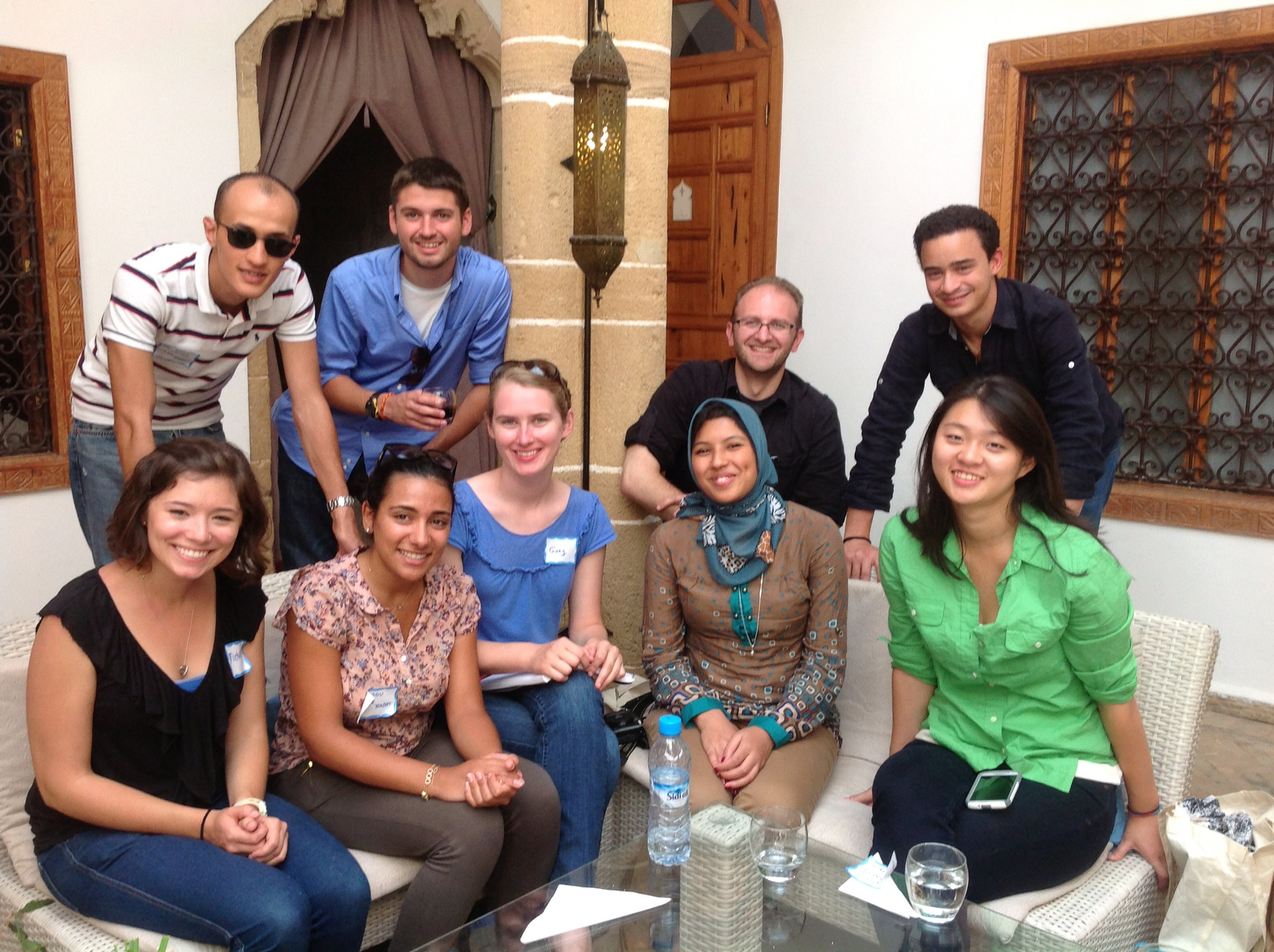Researchers meet in Morocco to focus on group violence and interventions

The Center for Peace Studies and Violence Prevention recently assembled a small group of social scientists from across the world to investigate the causes and consequences of group violence.
Senior scholars from Sri Lanka, Finland, the United Kingdom, and the United States, along with faculty, graduate students and undergraduates from Virginia Tech, met in Rabat, Morocco, to produce a transdisciplinary research manuscript.
“Topics ranged from hate crimes committed by one individual to riots, revolutions, and terroristic acts committed by well-organized groups,” said Jim Hawdon, director of the center and professor of sociology in the College of Liberal Arts and Human Sciences.
“Our goal for this publication was to summarize current knowledge about group violence and address critical theoretical questions about the causes, as well as to identify common themes across various types of group violence, and outline areas for future research,” noted John Ryan, head of the Department of Sociology.
The book, “From Bullies to Terrorists: The Causes and Consequences of Group Violence,” will be published by Lexington Publishers.
“Several chapters will be dedicated to strategies for promoting community resiliency in the face of group violence,” noted Ryan, who along with Hawdon and colleagues in Finland, have studied how solidarity plays a vital role in coping after tragedies.
Virginia Tech participants included Hawdon, Ryan, and assistant professor of sociology Anthony Pegeuro, and Marc Lucht, director of the undergraduate research institute in the College of Liberal Arts and Human Sciences.
“It was important to students to conduct research that could speak to the possibility of developing preventative responses to violence,” said Christian Matheis of San Antonio, Texas, a Ph.D. candidate in the Alliance for Social, Political, Ethical, and Cultural Thought. “In addition to social science research that helps explain causes and patterns of violence, peace studies scholars and activists seek to emphasize opportunities for intervention.”
Five Virginia Tech undergraduates also joined the team in Morocco and will contribute two chapters to the anthology. The Virginia Tech students collaborated with students from the college’s partner institution, the Ècole de Gouvernance et D’Èconomie de Rabat (EGE-Rabat) to run a parallel working conference. Two EGE-Rabat students studied at Virginia Tech last year.
Undergraduate participants from Virginia Tech included: Jeanne Chang of Vienna, Va., a junior majoring in fisheries science in the College of Natural Resources and Environment; Alec Clott of Raleigh, N.C., a senior sociology major; Virginia Roach of Montpelier, Va., a senior civil engineering major; and Michelle Sutherland of Arlington, Va., a senior majoring in political science in the College of Liberal Arts and Human Sciences.
Lindsay Kahle of Knox, Pa., a graduate student in sociology, was unable to make the journey to Morocco, but will be co-authoring a chapter.
“A central mission of our center is to study and promote sources of community resiliency after violent events,” said Hawdon, “and our work to date has largely focused on community resiliency after mass tragedies. While we have increased our awareness of how communities respond to mass traumas by studying the social relations in several communities that suffered horrific acts of violence, the conference and book will extend our efforts to investigate how communities remain resilient after prolonged periods of violence. We are also interested in studying how less visible but persistent acts of violence such as bullying and vigilantism affect community resiliency.”
The conference was made possible by the generous support of the Lacy Foundation.




